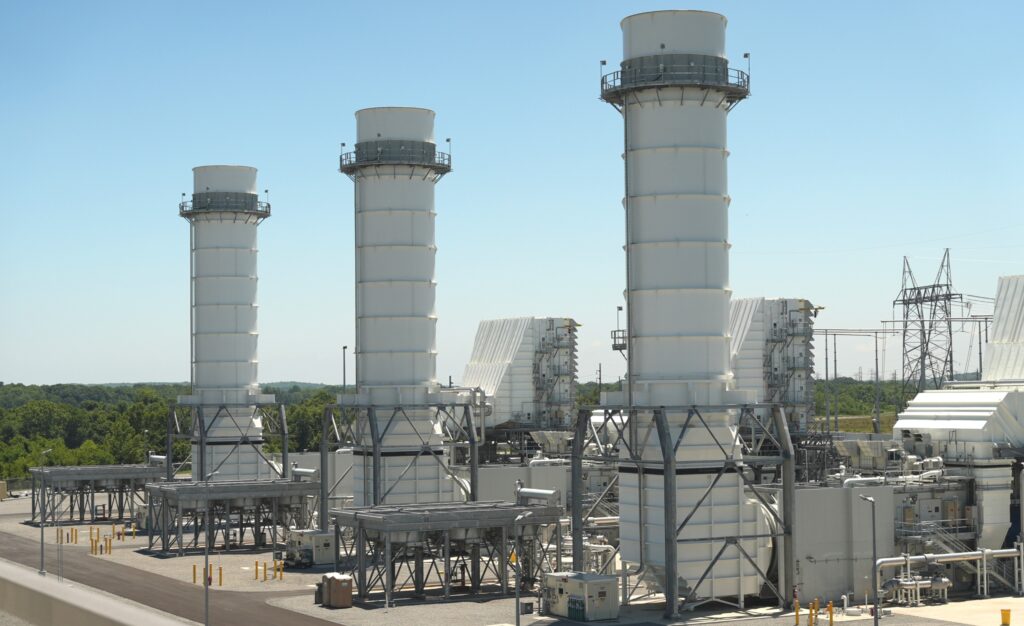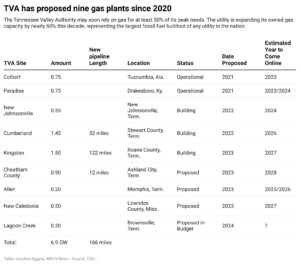
The Tennessee Valley Authority is increasing its gas capacity by about 60% this decade.
Last month, TVA revealed plans for another methane gas plant in West Tennessee. The TVA Board, the utility’s main regulator, approved funds for a 300-megawatt, or .3-gigawatt, facility in Brownsville, a town about an hour northeast of Memphis.
TVA has now proposed nine gas plants since 2020.
TVA’s current power mix is 45% fossil fuels. During the last fiscal year, TVA’s total power use, including purchased power, was split between 42% nuclear, 31% gas, 14% coal, 9% hydro and 4% wind and solar.
From a capacity perspective — meaning the maximum amount of power TVA could generate at a given time last year, such as during peak summer heat or extreme cold — gas accounted for nearly 40% of the maximum output. That figure could soon grow to more than 50%. (TVA gets its capacity from owned generation and purchased power. Including purchased power, and assuming that power doesn’t change, this figure still ends up at over 50%.)
By building more gas plants, TVA is increasing its reliance on gas to deliver during temperature extremes.
In 2022, TVA had 11.8 GW of owned gas capacity, before any of the new gas projects went online, according to a filing to the U.S. Securities and Exchange Commission. TVA intends to add 6.9 GW of capacity this decade, roughly a 60% increase in gas capacity.
TVA has repeatedly said that its gas expansion will increase reliability, but there is growing concern about the reliability of gas in cold weather.
In December 2022, during an Arctic storm, TVA issued rolling blackouts after losing fossil fuel generation equivalent to 20% of its peak demand. TVA could not fully operate 10 of its 17 gas plants.
“Extreme cold weather events have repeatedly impaired the production, gathering, processing, and transportation of natural gas,” the Federal Energy Regulatory Commission said in a report about the event, referring to fracking sites, pipelines and compressor stations.
TVA has also claimed that it needs more gas to reliably incorporate more wind and solar, despite having gotten just 4% of its energy from either source last year. In other places, like California and Texas, grids have become more reliable during heat waves through the expansion of solar and storage — and less polluting.
TVA’s fossil fuel expansion will cause significant climate and air pollution each year across the Tennessee Valley. Gas projects, as opposed to renewable and storage projects, may also increase costs for TVA’s 10 million customers, according to the U.S. Environmental Protection Agency, which detailed critiques of the environmental review for TVA’s Kingston project.
TVA raised electricity rates by about 5% for the second consecutive year last month — and experts pointed the finger at the gas expansion.


